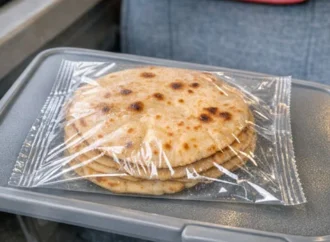Report
On Tuesday, the Kerala High Court issued strict orders to ban the use and sale of single-use plastics across the state. The ban covers plastic food containers, plates, cups, straws, sachets, and bakery boxes, especially in hilly tourist areas with large crowds. However, the court allowed the use of soft drink bottles of 5 litres or more. The order also requires officials to ban plastic water bottles smaller than 5 litres, soft drink bottles under 2 litres, and all plastic straws, plates, cups, and disposable cutlery at all Central and state government events held in Kerala.
Ban Extended to Weddings, Hotels, and Restaurants
The Kerala High Court ordered private events like weddings and commercial establishments such as auditoriums, restaurants, and hotels across Kerala to follow the same plastic restrictions. Authorities will grant licences to these venues only if they comply with the rules. In tourist hotspots, local bodies must install enough water kiosks to provide clean drinking water. They also need to arrange alternatives like glass bottles and refill stations to discourage visitors from bringing single-use plastics. Officials must encourage tourists to carry reusable bottles instead.
Stricter Enforcement and Public Awareness
Local Self-Government bodies must act firmly to stop the dumping of plastic waste into rivers, canals, and backwaters. The High Court directed the state to ramp up public awareness campaigns about the environmental hazards posed by single-use plastics and poor waste disposal habits. The court also ordered strict enforcement of Rule 9 (Extended Producer Responsibility) under the Plastic Waste Management Rules, 2016, along with other relevant laws. A Special Bench of Justice Bechu Kurian Thomas and Justice Gopinath P, which oversees waste management cases in Kerala, issued these directions, underlining that protecting the environment is a fundamental right for every citizen.
Implementation Starts on Gandhi Jayanti
This comprehensive ban will take effect on October 2, Gandhi Jayanti. The Chief Secretary and Special Secretary of Local Self-Government Institutions must coordinate with local bodies, the State Pollution Control Board, and the police to ensure the new rules are enforced without fail.
Source: Manorama
 Food Manifest
Food Manifest 

















